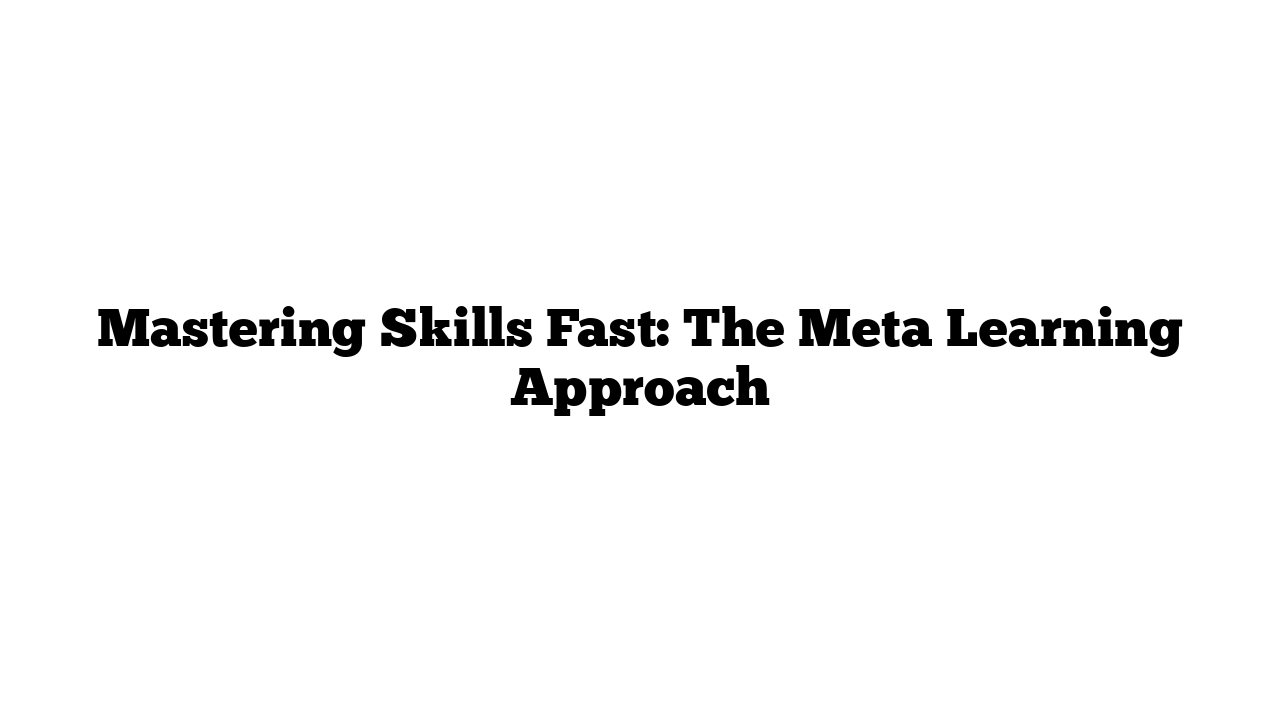Have you ever wished you could master a skill five times faster than everyone else? It’s a common feeling to compare yourself with those who seem to achieve the impossible in a matter of months. But don’t worry! There’s a secret superpower that can transform your learning experience—it’s called meta learning, or learning how to learn.
In this article, we’ll explore six powerful techniques that the world’s fastest learners use to achieve incredible results. By applying these methods, you can accelerate your learning journey and reach your goals more effectively.
1. Get Early Wins
One of the most crucial aspects of mastering a new skill is to achieve early successes. Research shows that positive feedback can fuel motivation and enhance learning. Consider the example of Jimmy Donaldson, known as MrBeast, who created videos for years without immediate success. However, after one of his early videos went viral, he experienced a dopamine rush, reinforcing his desire to keep creating.
The key takeaway here is to find opportunities for quick wins. If you’re learning a new language, like Spanish, focus on mastering simple phrases first. This approach not only builds your confidence but also motivates you to continue learning.
2. Choose the Right Teacher
Choosing the right mentor or learning strategy can significantly impact your progress. Many people mistakenly believe that they should learn from the top experts in a field. However, it might be more beneficial to seek out those who have achieved rapid results themselves.
For example, Brazilian Jiu-Jitsu (BJJ) practitioner Kurt Osiander took less than four years to achieve his black belt, compared to the average of 10 to 15 years. Find teachers or resources that offer efficient learning methods and can help you achieve your goals faster.
3. Focus on Key Leverage Points
In any learning endeavor, identify the 20% of concepts that will yield 80% of the results. For instance, when learning Spanish, mastering the top 100 words can provide you with about 50% fluency. Recognizing patterns in the language can also help. Many words in Spanish end with “-al” and have similar meanings to their English counterparts (e.g., natural and natural).
Simplifying the learning process is vital. Avoid overwhelming yourself with complex grammar or extensive vocabulary. Instead, concentrate on practical language usage and relevant phrases that will make a significant difference in your communication skills.
4. Tighten the Feedback Loop
Feedback is essential for effective learning. The faster and more frequent your feedback, the quicker you can improve. For example, imagine two people learning to meditate. One practices for 20 minutes a day, while the other uses a device that provides immediate feedback on their brain waves. The second person will likely make more progress due to the instant corrections they receive.
In language learning, immersing yourself in the culture or speaking with native speakers can significantly enhance your progress. If you can’t travel, try using language exchange apps or local meetups to practice speaking and receive feedback.
5. Embrace the Learning Curve
As you embark on your learning journey, it’s crucial to acknowledge that progress isn’t always linear. You may hit plateaus or even experience setbacks. However, remember that these challenges are part of the process.
Having the courage to embrace discomfort is vital. Just as in relationships or personal growth, pushing through tough times can lead to breakthroughs. It’s okay to feel frustrated—what matters is your determination to keep going.
6. Shift Your Self-Identity
Your self-image significantly impacts your learning capabilities. A study showed that participants who were labeled as “women” performed worse on math tests compared to those labeled as “Asian.” This demonstrates how self-perception can influence performance.
To excel, cultivate a positive identity around your abilities. Instead of saying, “I’m not good at languages,” tell yourself, “I am becoming fluent in Spanish.” This shift can inspire confidence and resilience, helping you overcome challenges along the way.
Experience the Journey
Learning a new skill can be a thrilling adventure. By applying these techniques—getting early wins, choosing the right teachers, focusing on key concepts, tightening feedback loops, embracing the learning curve, and shifting your self-identity—you can master any skill faster than you ever thought possible.
Explore More
For additional tips and insights on health and learning, visit medicaltimes.io.
